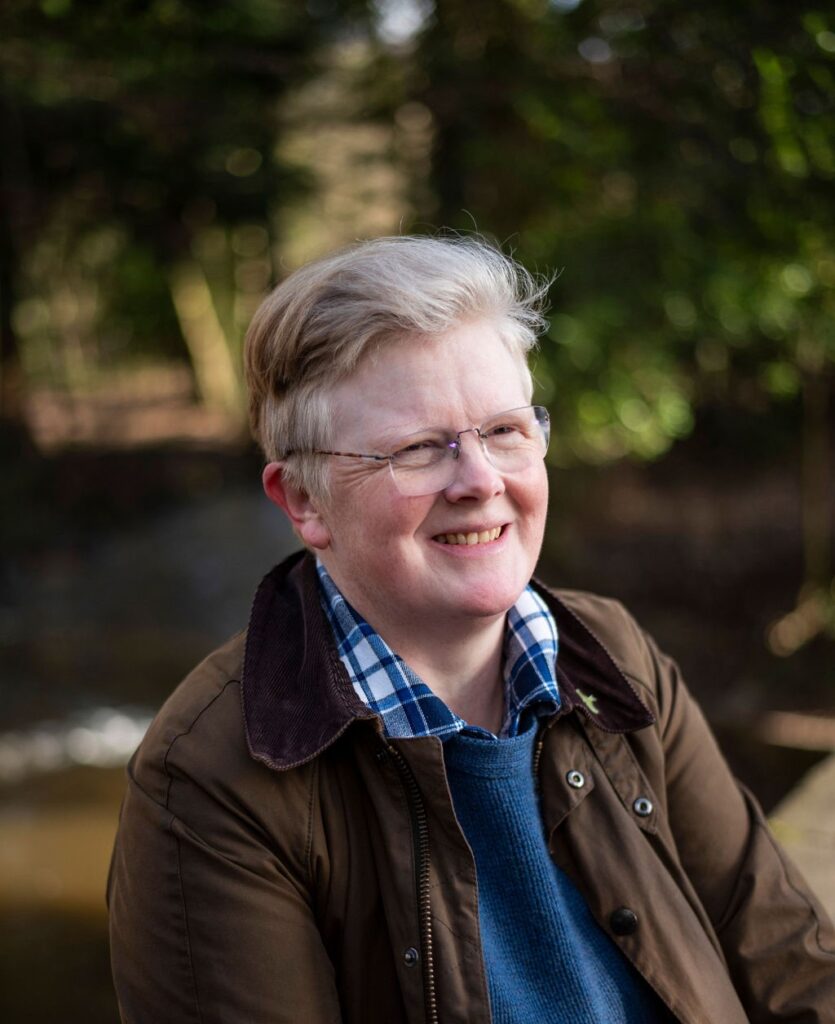Featured image: Nelly Naylor
May marks skin cancer awareness month and according to Cancer Research UK, nine in ten people are diagnosed with melanoma in the UK. Susie Wilson is an autistic Scottish poet living Sheffield whose collection of poems, Nowhere Near as Safe a Snake in the Bed explore her own personal struggle with melanoma, which began five years ago.
Crowned the winner of the 2024 Disabled Poets Prize in the category of Unpublished Pamphlets, Susie is an alumnus of the Manchester Writing School at Manchester Met. Here Susie was taught by some of the 21st century’s leading female voices in poetry including Dame Carol Ann Duffy, Malika Booker and Karen Solie.
What made you gravitate towards poetry?
I started doing an MFA in Creative Writing at Sheffield Hallam, covering all genres. I thought I wanted maybe to write short stories, but I have been writing poetry since I was about 16. I’ve been writing poetry consistently, even just little bits. I only wrote about ten decent poems in ten years, and I thought: “I’m not sure that’s the way for me, maybe I’m a story person.” But what I love about poetry is that it’s holistic and it shares moments of thought with images and sound combined. That’s why I like poetry.
What does Poetry mean to you?
Poetry for me is about perception. It’s like an experience where you perceive something new while you’re writing. It works generally by bringing together unfamiliar images. When these two things come together, you see something new about the universe. There’s been a funny thing going on in Barnsley where people have been putting stickers on lamp posts that say: “We get it, poets, one thing is like another”. It’s like taking the mick out of poetry, but it’s true. Poetry takes one thing, brings it together with another one, and you get a new thought out of it in a little small space where it all happens at once.
How does poetry help you as a disabled woman?
As a disabled person, poetry allows me to continue being my full self. When I am writing, I feel most alive and alert about whatever my body is doing. It gives me an enormous amount of pleasure. It is a struggle as a disabled person who is on treatment for advanced melanoma, which means that I get fatigued. Sometimes I have to take medications that change the way my brain works and they can give me insomnia. I spent an entire month last year not sleeping at all, which meant I couldn’t function in the same way that normally do. But the big thing I discovered, and that this prize has helped me with, is that you don’t have to wait until you feel perfect to write. It’s possible to keep writing when you feel a bit grim, and the more that you write, the better you feel because you’re being your poetic self more than your medical self. I’m keen on doing what you value first rather than sitting around paying attention to the medical rubbish as much as possible.
What motivates you to keep writing on hard days?
I just want to discover things and when I write I discover things. I read quite a bit, and as a person with autism and ADHD, when I read a paragraph of something, my head gets about 50 ideas. My mind goes all creative – I start writing, and between the reading, the thinking and the writing, I suddenly get new thoughts. I’m addicted to having new thoughts and finding out what other people have thought and then seeing what it might be possible to say about it. That’s what keeps driving me to write. When I write I discover stuff that I had no idea existed before.
Who is your favourite poet?
John Donne. He was a metaphysical poet from the Renaissance period. As he was so strange, he understood that life is strange. He was a person who had enormous compassion and he was interested in equality. In one of his famous poems, he used the image of a compass and he talked to his wife about being away from her and being connected. He has these weird metaphysical images. He’s really kind of logical underneath, he just thinks big thoughts.
Why do you think society needs poetry?
I think that society needs poetry for a similar reason that it needs fiction, which is that when we experience what other people experience through empathy and feelings, we understand each other better. When you read a poem that’s written by another person, you get to be in their shoes for a moment. When someone else reads your poem, they get to experience whatever your thoughts, feelings or perceptions are. Poems encourage understanding of other people, other situations and empathy in a complex way, but one that you don’t have to analyse. You can just feel it.
If people keep writing poetry and keep hearing it and keep reading it, then we are, I think, helping people to exchange philosophical points of view and exchange feelings about life. Essentially, in a world where everyone is pushing apart, poetry is a place where you can come together to understand things. The more complex poetry is, the more it trains us to understand life as a complex thing because I don’t think we help ourselves in the world today with the conflicts across the globe and the threats of climate change. Poetry says: this is complex. We need to sit with it think about it and feel it.






Leave a reply